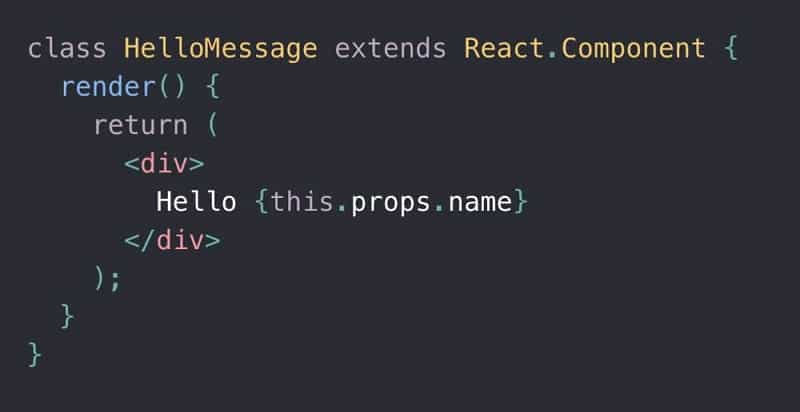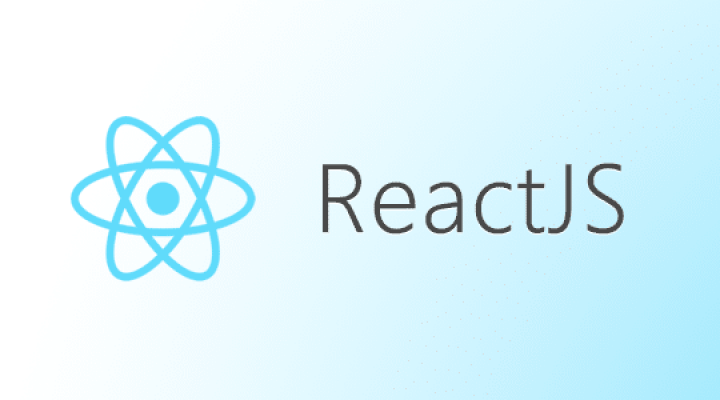Netflix, Yahoo, Airbnb, Sony, and even Instagram… there are no longer any mobile or web applications that use it. But then, what is React.js, and why we decided to use it?
What is REACT?
React is a library in the frontend framework category, which only manages the interface of a site.
But before we start the hostilities… what is a front-end framework? It is a set of software used to create user interfaces, such as web or mobile applications. The objective of the “framework front” provide a ready-to-use solution for the development of these applications. Among the most used are Angular, Ember, Vue.js React, and many others.
What about React? Also called React.js or React JS, this is an open-source front framework that has been developed by Facebook since 2013 by Jordan Walke. The primary purpose of this library is to “facilitate the creation of single-page web applications (SPA), by creating state-dependent components that generate an HTML page or portion with each state change.”
THIS IS-A-DIRE: it facilitates user interfaces and allows you to create interfaces and reusable components with data that can change along the way – and that’s great!
What makes the difference?
But then why, Ideaine and (thousands) of other companies have decided to use it? By putting the composition back to the taste of the day, React has generated many changes in the way web interfaces are designed.
Indeed, thanks to him, it becomes almost as apparent as a simple problem of mathematics, look:
I know that: a component is
The unitary part of the site, Gold: each component can be itself composed of ingredients (you follow?): we speak well of composition.
If all is composition, we can integrate and replace React JS elements in existing web applications.
And that changes everything:

1. C’s simpler
What makes the difference from its competitors (mostly Angular JS) is its flexibility and performance, mainly thanks to working on a virtual DOM and updating the rendering in the browser only when needed. (Yes, because the DOM has a changing state is a bit painful..). Because browsers are slow to react to changes in the DOM, React has the advantage (and intelligence) of limiting interactions with the DOM. Therefore, he performs the operations on the virtual DOM and compares it to the real DOM to make the changes to be made.
The virtual DOM is just a tree of JS objects, which allows you to identify the nodes to be updated quickly. This reduces dialogue with browser APIs to build the DOM and gains performance.
Web Apps development
Have a creative idea? Contact us now and
let’s transform it into a Web solution.
2. C’s freer
Unlike other frameworks, React JS is not capricious… that is, it also does not impose a specific library for data. It is only the “View” part of the interface, and therefore the choice is up to you regarding the structure of the interface. It only works with JavaScript thanks to its JSX syntax(you’d have guessed!). You will only have to choose between Flux or Redux for your data store, for example … Isn’t life beautiful?
3. It is perennial
The uniqueness of the technologies, especially in digital, is that they scroll and reinvent themselves every time. Therefore, a frontend framework’s disadvantage is that it is always necessary to follow its evolution (and therefore, it is potential new functioning). The modification was adding a module to your application that requires total and perfect mastery of the framework. But why bother with a demanding and constraining framework that contains whole swathes of functions you’ll never use?
You can try to do the ostrich, but the bugs will always catch up with you. Whereas with React JS, you can use some features of the new versions without having to migrate all your code. “Learn once, write everywhere.”
4. You are not alone!
Today, and because of all the benefits mentioned above, you can see that the community around React JS is much larger than that of Angular JS. If needed, help will be much easier to find and more compatible bookstores and development advice.






